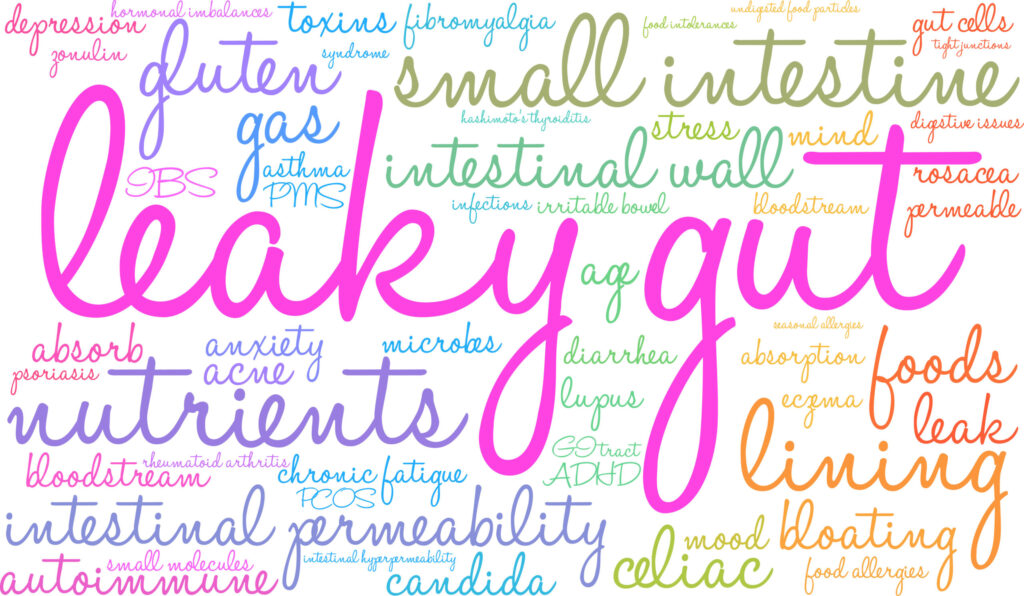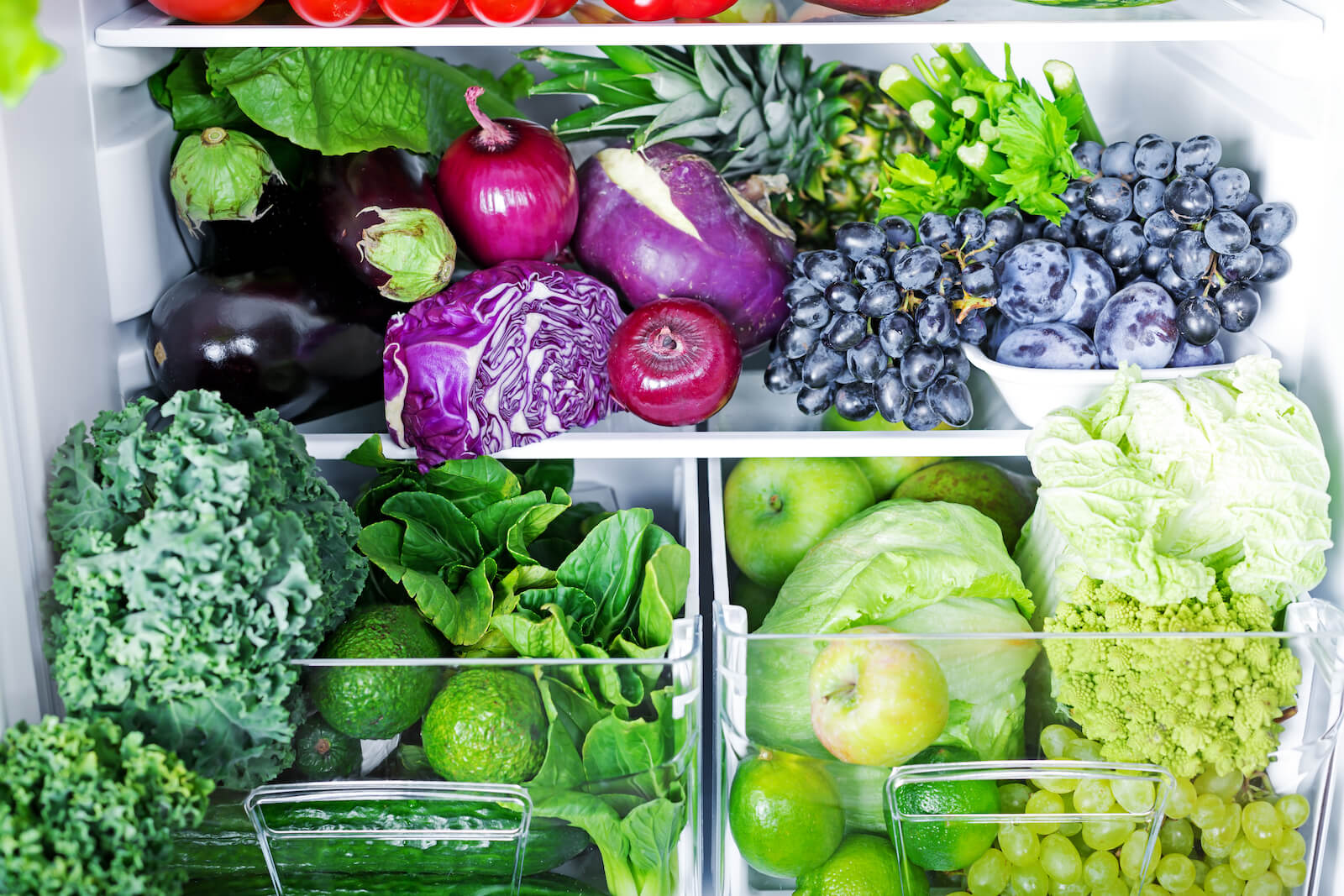The 6 Causes of Leaky Gut:
- Gastrointestinal Disease: IBS, IBD, Celiac, Diverticulitis, Gastroenteritis, etc.
- Imbalance of Gut Flora = Dysbiosis [1]: Yeast [2], Gram negative bacteria[3], SIBO (Small Intestine Bacterial Overgrowth), Parasites [4].
- Food Allergies + Food Sensitivities: Gluten/Wheat and Cross Reactive Foods with Gluten are the biggest culprits [5,6,7,8].
- Stress + Hormonal Imbalance: HPA Axis Dysregulation (Hypothalamic-Pituitary-Adrenal Axis), Hypothyroidism, PCOS (Polycystic Ovarian Syndrome), Glucose Dysregulation (Diabetes, Obesity), Menopause [9]
- AutoImmune Conditions: Irritable Bowel Disease, Celiac Disease, Systemic Lupus, etc [10].
- Toxins + Medications: Toxins + Medications (NSAIDs, Steroids, etc) [11,12].
Once you have determined that you do indeed have Leaky Gut (see this article on Lab Testing Pros & Cons for Leaky Gut), the next question should be:
What is UPSTREAM and causing Leaky Gut?
Functional Medicine practitioners are trained to look at physiology from a different perspective. We look beyond the constellation of symptoms in order to analyze the underlying root cause of a person’s current physiologic state.
A Functional Medicine Practitioner can help guide you along all of these steps. It is in your best interest to work directly with a practitioner who has experience with analyzing, assessing and treating Leaky Gut, as well as your overall symptoms.
So what do you do now?
Head on over to these other awesome trusted source articles!
STEP #1: Assess whether you have Leaky Gut
- Article: Lab Testing PROS & CONS for Leaky Gut / Intestinal Permeability
- Read: What Exactly is this Leaky Gut Phenomena?
STEP #2: Determine the Cause/s of Leaky Gut
- Article: Causes of Leaky Gut
STEP #3: Remove the cause/s of Leaky Gut, while also repairing the gut barrier (brush border)
A Functional Medicine Practitioner can help care and guide you along all of these steps. It is in your best interest to work directly with a practitioner who has experience analyzing, assessing and treating Leaky Gut as well as your overall symptoms.
I hope this “Inspired Health” article helps outline the 6 Causes!
Be inspired,
Dr. Meaghan Dishman
©2016 Dr. Meaghan Dishman ND, LAc, MSOM
[1] Anlonio Tursi, Gicwanni Brandiman, GianMarco Giorgelli. “High prevalence of small intestinal bacterial overgrowth in Celiac patients with persistence of gastrointestinal symptoms after gluten withdrawal.” Am J Gastro, Vol 98, no 4, 2003.
[2] Nieuwenhuizen, W., Pieters, R., Knippels, L., Jansen, M., Koppelman, S. “Is Candida albicans a trigger in the onset of Coeliac disease?” Lancet 2003; 361: 2152–54.
[3] Walker WA, Sanderson IR. Epithelial barrier function to antigens. An overview. Ann N Y Acad Sci.1992;664:10–17.
[4] Verdu, E.F., Mauro, M., Bourgeois, J., Armstrong, D. “Clinical onset of Celiac disease after an episode of Campylobacter jejuni enteritis.” Can J Gastroenterol Vol 21 No 7 July 2007.
[5] Hamilton, I., Cobden, I., Rothwell, J., Axon, A.T.R. “Intestinal permeability in Coeliac disease: the response to gluten withdrawal and single-dose gluten challenge.” Gut 1982;23:202-10.
[6] Walker, W.A., Sanderson, I.R. “Epithelial barrier function to antigens.” Ann NY Acad Sci, 1992; 664:10–17.
[7] Walker-Smith, J.A., Ford, R.P., Phillips, A.D. “The spectrum of gastrointestinal allergies to food.” Ann Allergy, 1984; 53:629-636.
[8] Juvonen, P., Jakobsson, I., Lindberg, T. “Macromolecular absorption and cow’s milk allergy.” Arch Dis Child, 1991; 55:300-303.
[9] http://www.ncbi.nlm.nih.gov/pubmed/26528128
[10] http://www.ncbi.nlm.nih.gov/pubmed/26191211
[11] Walker, W.A., Isselbacher, K.J. “Uptake and transfer of macromolecules by the intestine.” Gastroenterol, 1974; 67:531-550.
[12] Fagarasan, S., Honjo, T. “Intestinal IgA synthesis: regulation of front line defense.” Nat Rev Immunol, 2003; 3:63-72.






